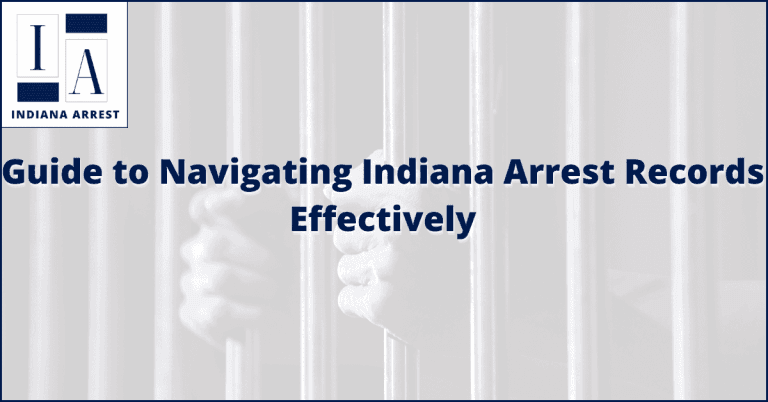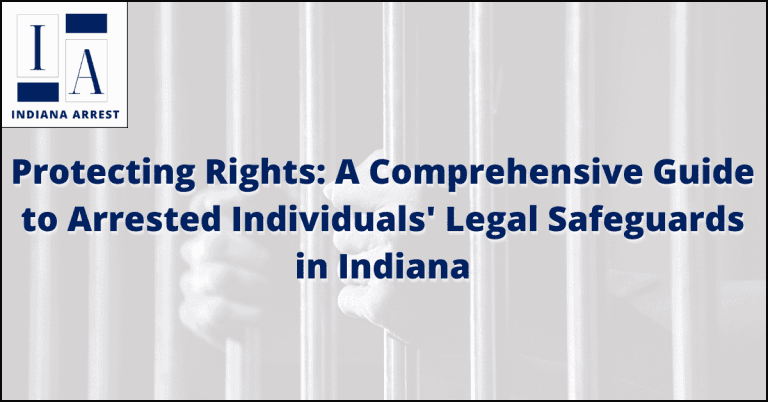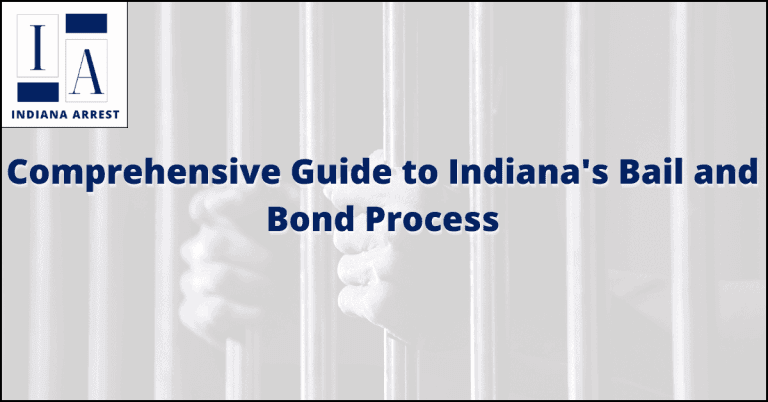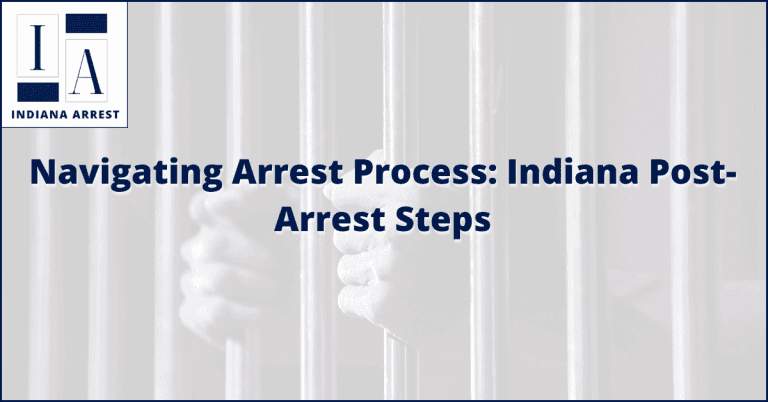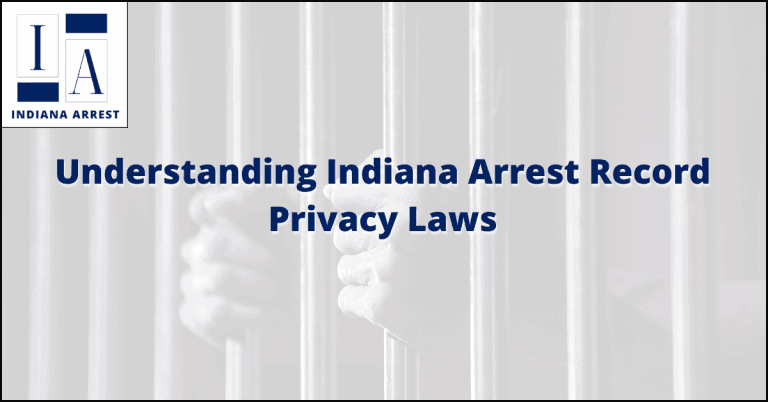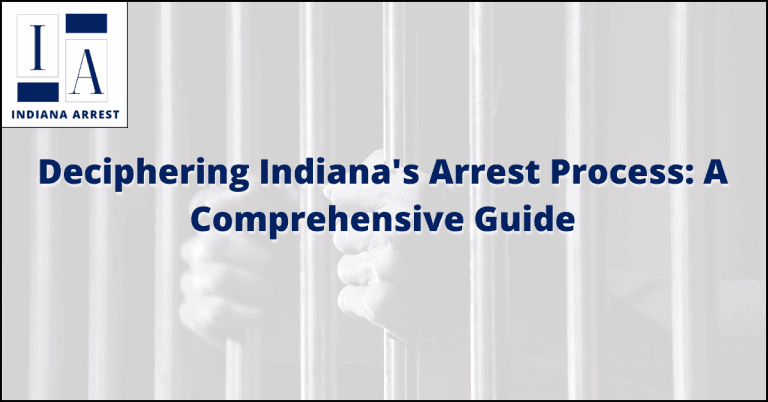Demystifying Indiana Arrest Record Terminology
Understanding the intricacies of Indiana’s arrest records requires familiarity with a unique set of terms and phrases. Navigating this lexicon can be challenging, but it’s an essential step towards comprehending the nuances of legal processes, law enforcement procedures, and the criminal justice system in the state. In this comprehensive guide, we delve into the “Indiana Arrest Records: Glossary of Terms,” shedding light on key terminology that empowers individuals to interpret these records accurately.
Within the realm of Indiana’s legal framework, arrest records contain a wealth of information, from the initial detention of an individual to the subsequent legal actions that unfold. Our aim is to provide clarity and insight into the specific language used within these records. By elucidating the meanings behind the terms that appear frequently, we strive to equip you with a deeper understanding of Indiana’s arrest records landscape.
Arrest Warrant
An arrest warrant is a crucial legal document that permits law enforcement to apprehend an individual suspected of committing a crime. This warrant is issued by a judge and provides the necessary authority for the arrest. It signifies the commencement of the legal process and outlines the charges against the individual.
Booking Process
Following an arrest, the booking process entails the recording of essential information about the arrested person. This includes biographical details, fingerprints, photographs, and other identifying data. The booking process is a fundamental step that helps law enforcement maintain accurate records and establish the identity of the arrested individual.
Probable Cause
Probable cause is a legal standard that law enforcement must meet before making an arrest. It refers to the reasonable belief that a person has committed a crime based on available evidence. Probable cause serves as a safeguard against arbitrary arrests, ensuring that there’s a valid reason to take someone into custody.
Miranda Rights
Miranda rights are an integral aspect of an arrest, ensuring that the detained person is aware of their rights. Named after the landmark Supreme Court case Miranda v. Arizona, these rights include the right to remain silent and the right to an attorney. Law enforcement is obligated to inform individuals of these rights upon arrest.
Arraignment
An arraignment is a significant step in the legal process that occurs after an arrest. It’s the first court appearance where the arrested person is informed of the charges against them. During the arraignment, the defendant can enter a plea, typically “guilty” or “not guilty,” and may also have the opportunity to request bail.
Bail and Bond
Bail refers to the amount of money set by the court that an arrested person needs to pay in order to be released from custody while awaiting trial. Bond, on the other hand, involves a bail bondsman who covers the bail amount for a fee, especially if the arrested individual cannot afford it. This fee is usually a percentage of the total bail.
Expungement
Expungement is a legal process that allows eligible individuals to have their arrest records erased. In Indiana, certain circumstances, such as charges being dismissed or acquittal, can make a person eligible for expungement. This process aims to provide a fresh start for individuals who have been wrongly accused or have successfully moved past their previous legal issues.
Criminal Record Sealing
Similar to expungement, criminal record sealing restricts public access to an individual’s arrest records. Although the records are not completely erased, they are made inaccessible to most members of the public. Sealing is particularly beneficial for those who want to keep their past arrests private and reduce the impact of such records on their lives.
Plea Bargain
Before a trial, a plea bargain may occur between the prosecution and the defense. This negotiation often results in a plea of guilty to a lesser charge or reduced penalties. Plea bargains can expedite the legal process and provide an opportunity for individuals to avoid the potential consequences of a trial.
Pretrial Conference
A pretrial conference is a meeting involving the prosecution, defense, and judge to discuss the progress of a case. During this conference, parties may explore potential resolutions, address evidence or legal issues, and determine the trial’s readiness. It’s a stage where both sides can reach agreements that may influence the trial’s direction.
FAQS
What Does “Disposition” Mean on an Indiana Arrest Record?
In Indiana arrest records, the term “disposition” refers to the final outcome of a criminal case. This can include outcomes such as “dismissed,” “convicted,” “acquitted,” or “deferred.” It indicates the resolution of the case after court proceedings. Understanding the disposition is crucial for interpreting the status and implications of an arrest record accurately.
What Is the Difference Between an “Arrest” and a “Charge” in Indiana?
An “arrest” in Indiana signifies that a person has been detained by law enforcement based on suspicion of involvement in a crime. A “charge,” on the other hand, means that formal accusations have been made against the person, typically by a prosecutor. While an arrest is the initial step, a charge follows an arrest if the authorities decide to pursue legal action. Knowing this distinction helps in comprehending the legal process detailed in arrest records.
What’s the difference between an arrest warrant and a search warrant?
An arrest warrant is issued to apprehend a person suspected of a crime, while a search warrant is issued to permit law enforcement to search a specific location for evidence.
Can I request expungement if I was arrested but not convicted?
Yes, Indiana law allows for expungement of arrest records if the charges were dismissed, you were acquitted, or certain waiting periods have passed.
What happens if I can’t afford bail?
If you can’t afford bail, you may seek assistance from a bail bondsman who can cover the bail amount for a fee. Alternatively, the court might consider releasing you on your recognizance or setting a lower bail amount.


